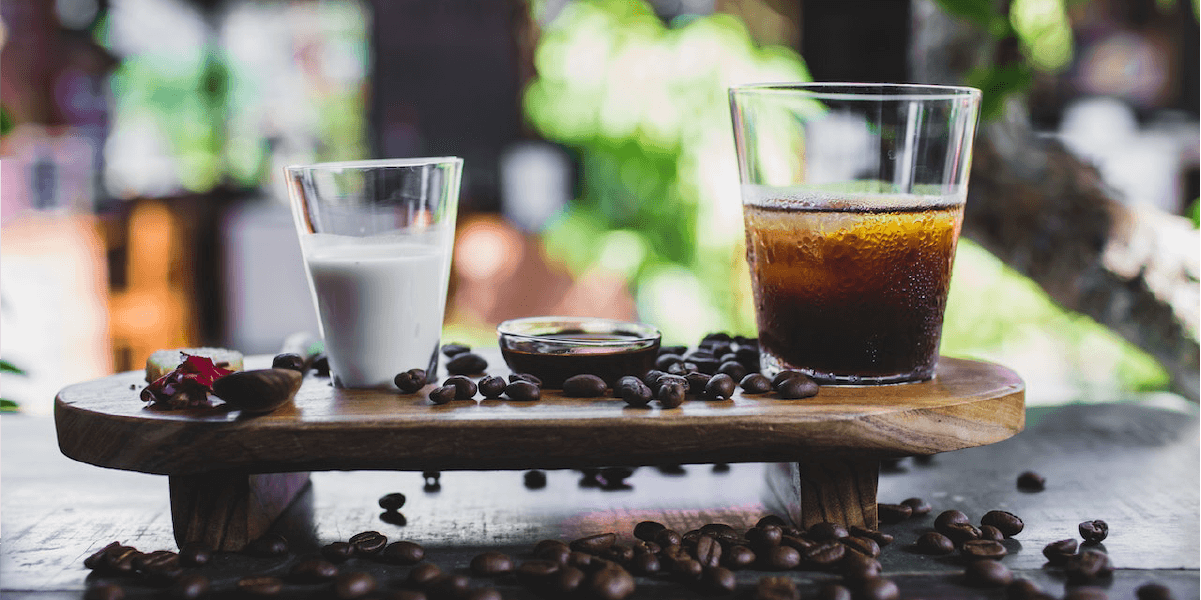Introduction
Cold brew coffee has taken the coffee world by storm with its smooth, refreshing taste and unique brewing method. Whether you’re an avid coffee lover or a casual caffeine enthusiast, you’ve probably wondered why cold brew coffee tastes so good. In this blog, we’ll unravel the science behind cold brew coffee and this beloved beverage and explore the secrets that make it stand out from traditional hot coffee. So, grab your favorite cold brew, and let’s dive into the fascinating world of the science behind its exceptional taste.
The Cold Brew Coffee Process: A Different Approach
To understand why cold brew coffee tastes so good, we need to start with its distinct brewing process. Unlike traditional hot coffee, where hot water quickly extracts flavors and oils from the beans, cold brew relies on a slow, patient steeping method. Coarse coffee grounds are combined with cold water and allowed to steep for an extended period, usually around 12 to 24 hours. This gentle extraction process results in a coffee that is less acidic and smoother in taste.
Chemistry in Action: Lower Acidity, Enhanced Sweetness
The prolonged steeping time of cold brew is not just about patience; it’s about the chemistry that takes place during the process. The hot water extracts a higher amount of acids from coffee beans, leading to the characteristic tangy and bitter notes in traditional coffee. However, cold water extracts fewer acidic compounds, resulting in a coffee with lower acidity. This reduction in acidity enhances the sweetness of the coffee, making it smoother and more pleasant on the palate.
The Role of Temperature: Unleashing Flavor Compounds
Temperature plays a crucial role in the extraction of flavors from coffee beans. Hot water tends to extract a broader range of compounds, including bitter and astringent ones. Cold water, on the other hand, emphasizes the extraction of certain aromatic compounds while minimizing the extraction of bitter and acidic elements. This selective extraction is one of the reasons why cold brew coffee boasts a distinct, flavorful taste.
Coffee Bean Selection: Curating Flavors
While the brewing process plays a significant role, the choice of coffee beans is equally essential in creating the perfect cold brew. Different coffee bean varieties possess distinct flavors and characteristics. Some beans may have fruity notes, while others might be nutty or chocolatey. Roast level also influences the flavor profile, with lighter roasts offering brighter and more delicate flavors, and darker roasts providing richer, bolder tastes.
Time for the Magic: Cold Brew Steeping Period
The magic of cold brew happens during the extended steeping period. As the coffee grounds and cold water interact, a process called diffusion takes place. Various compounds within the coffee grounds dissolve into the water, creating a complex and nuanced flavor profile. This process allows the cold brew to capture a range of flavors without the bitterness and acidity that can overpower the taste experience.
Cold Brew Concentrate: The Power of Dilution
Many cold brew enthusiasts prefer using a concentrate to create their perfect cup of coffee. Cold brew concentrate is made by steeping a higher coffee-to-water ratio, resulting in a strong brew that can be diluted to taste. The beauty of this approach is that it offers coffee lovers the freedom to customize their coffee’s strength, flavor, and consistency.
The Perfect Cup: Serving and Pairing
To fully appreciate the wonders of cold brew coffee, serving and pairing it correctly is essential. Cold brew can be enjoyed as is, over ice, or mixed with milk, cream, or your favorite alternative milk for a creamier experience. For those seeking an indulgent treat, a drizzle of sweet syrup or a scoop of ice cream can elevate the taste to a whole new level. And let’s not forget the delicious possibilities of cold brew-based cocktails, creating exciting and refreshing beverages for warmer days and special occasions.
Conclusion
Cold brew coffee’s exceptional taste is no accident; it’s a result of a thoughtful brewing process that enhances its natural flavors and minimizes undesirable elements. The cold steeping method, paired with the right bean selection and precise brewing times, creates a drink that is smoother, sweeter, and more balanced than its hot counterpart. So, whether you’re a seasoned cold brew aficionado or a curious newcomer, understanding the science behind this beloved brew will undoubtedly deepen your appreciation for its complex and delightful flavors. Thank you for reading about the science behind cold brew coffee and the reason its the best method.

